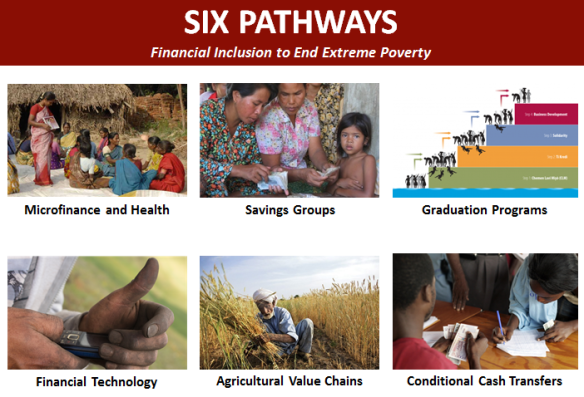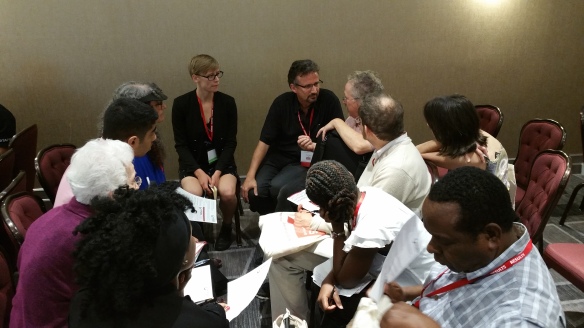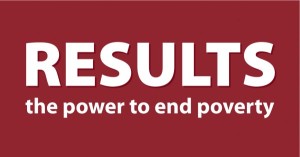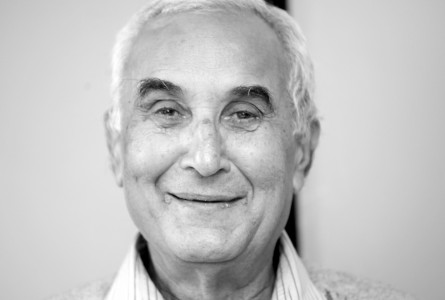
Lea en español *** Lisez en français
>>Authored by Dr. D.S.K. Rao, Regional Director for Asia-Pacific
We learned recently that a great friend of the Microcredit Summit Campaign died of lung cancer earlier this month. Dr. Harihar Dev Pant, a pioneer of microfinance in Nepal, started his career in microfinance as a deputy director in the Nepal Rastra Bank (NRB, the country’s central bank), and went on to found one of the largest microfinance banks in Nepal, Nirdhan Utthan Bank Ltd. He was its chairman and CEO till near the end.
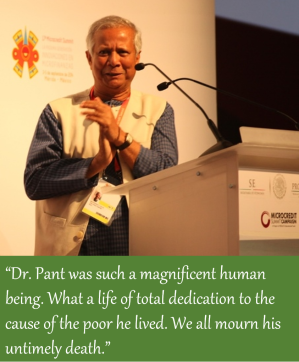 As the deputy governor of the central bank, Dr. Pant laid the foundation for microcredit in Nepal. Dr. Pant was greatly influenced by Prof. Muhammad Yunus (to the right) and was indoctrinated by the Nobel laureate into microfinance.
As the deputy governor of the central bank, Dr. Pant laid the foundation for microcredit in Nepal. Dr. Pant was greatly influenced by Prof. Muhammad Yunus (to the right) and was indoctrinated by the Nobel laureate into microfinance.
As the deputy governor he was responsible in creating five rural banks in Nepal specializing in microcredit operations and following the Grameen Bank lending methodology. Dr. Pant was the founder-chairman of the first two Grameen Bikas Banks in Nepal: Purbanchal Grameen Bikas Bank and Sudur Paschimanchal Grameen Bikas Bank. After his retirement from the central bank, he created Nirdhan Utthan Bank, which grew rapidly to become one of the largest MFIs in the country.
Dr. Pant was also a great friend of Microcredit Summit Campaign. He attended all of the Summits in the early years and acted as a panelist many times in plenaries and workshop sessions. His latest contribution was at the Global Microcredit Summit 2011 in Spain. He shared how his staff managed to reach remote, mountainous areas of Nepal, and how Nirdhan manages to balance the necessity of being profitable and meeting their social mission.
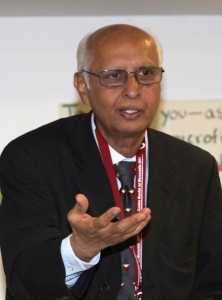
Dr. D.S.K. Rao
Whenever I visited Nepal in 2000s, Dr. Pant extended full cooperation. He introduced me to the promoters of all the major MFIs in the country and helped me to develop a rapport with them. He also helped in organizing workshops, participated with microfinance stakeholders, particularly practitioners.
Dr. Pant was very keen that Nirdhan, the bank he promoted, have a strong poverty focus. He commenced the service by offering loans of Rs.3,000 to Rs.5,000 ($28-47) to underprivileged women to run microenterprises. Dr. Pant also showed a keen interest in qualitative poverty measurement tools, such as the CASHPOR Housing Index and poverty wealth ranking, and he introduced them in his bank. He was deeply concerned that microfinance too, like formal banks, may be missing the really poor households. He gave much more importance to depth of poverty outreach over scaling up the program through reckless financing.
Dr. Pant keenly followed the progress of microfinance in Asia, particularly in South Asia. One could speak to him on any subject, ranging from banking, finance, economics, culture, and, of course, politics. Such was his passion towards microfinance that despite severe setbacks to his health in the last couple of years, Dr. Pant continued his active involvement with the sector.
Dr. Pant had been suffering from lung cancer for the last seven months. He was diagnosed in February and received treatment at Rajiv Gandhi Super Speciality Hospital in New Delhi, India. 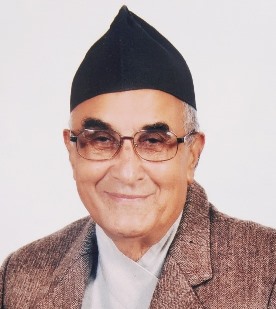 Lately, he underwent treatment at Nepal Cancer Hospital and Research Centre, Lalitpur. He passed away at his residence in Anamnagar, Kathmandu on September 8th.
Lately, he underwent treatment at Nepal Cancer Hospital and Research Centre, Lalitpur. He passed away at his residence in Anamnagar, Kathmandu on September 8th.
Pant was the father figure of microfinance in Nepal. A kind and jovial person. Deep condolences to his family.
May his soul rest in peace.
Additional words of remembrance
 “When the Microcredit Summit Campaign was launched 18 years ago, I found it quite remarkable that a high ranking Central Bank official in any country had so fully embraced microfinance for the very poor. But that is what Dr. HD Pant had done and it was an honor to have his wisdom and commitment contribute to the success of the Summits that followed. I hope his family and friends find some solace in the greatness of his achievements.”
“When the Microcredit Summit Campaign was launched 18 years ago, I found it quite remarkable that a high ranking Central Bank official in any country had so fully embraced microfinance for the very poor. But that is what Dr. HD Pant had done and it was an honor to have his wisdom and commitment contribute to the success of the Summits that followed. I hope his family and friends find some solace in the greatness of his achievements.”
— Sam Daley-Harris, Founder, Microcredit Summit Campaign; and CEO, Center for Citizen Empowerment and Transformation (CCET)
…
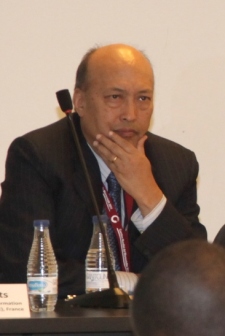 “He was a good friend and served the microfinance sector with devotion and dedication. While I focused in the eastern region of Nepal, Dr. Pant worked in the western region in the districts of Rupandehi, Kapilbastu and Nawalparasi. We competed and also complemented each other. Dr. Pant was an honest and hardworking man, wholly committed towards his work for the poor. It is very sad to lose a colleague and friend of many years.”
“He was a good friend and served the microfinance sector with devotion and dedication. While I focused in the eastern region of Nepal, Dr. Pant worked in the western region in the districts of Rupandehi, Kapilbastu and Nawalparasi. We competed and also complemented each other. Dr. Pant was an honest and hardworking man, wholly committed towards his work for the poor. It is very sad to lose a colleague and friend of many years.”
— Shankar Man Shrestha, Chairman, Centre for Self-help Development; and former CEO, Rural Microfinance Development Centre Ltd.


